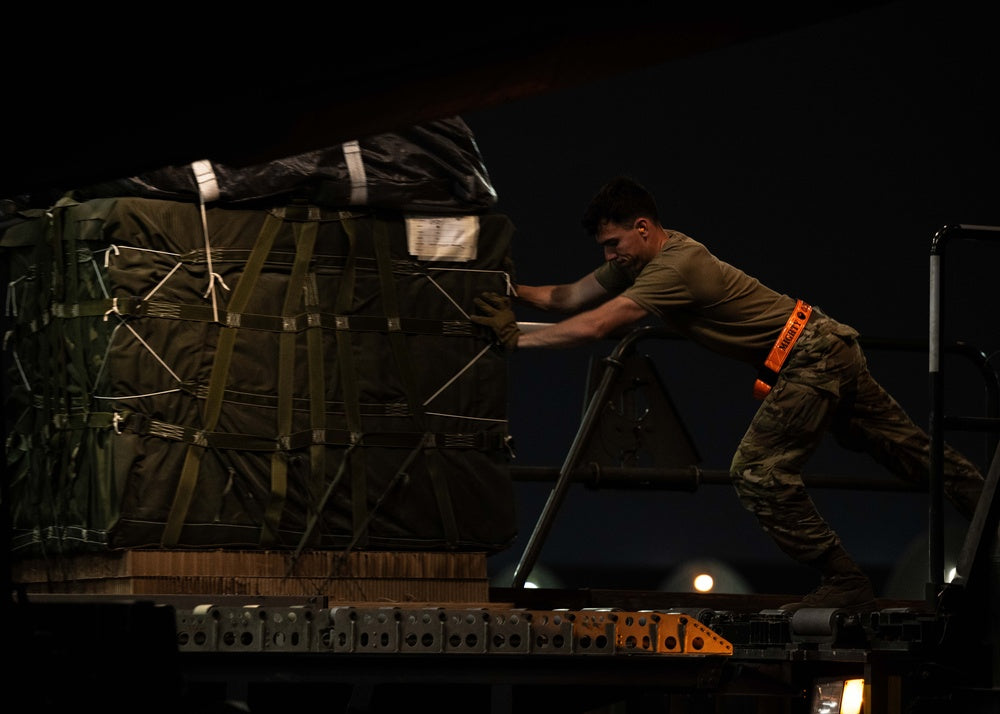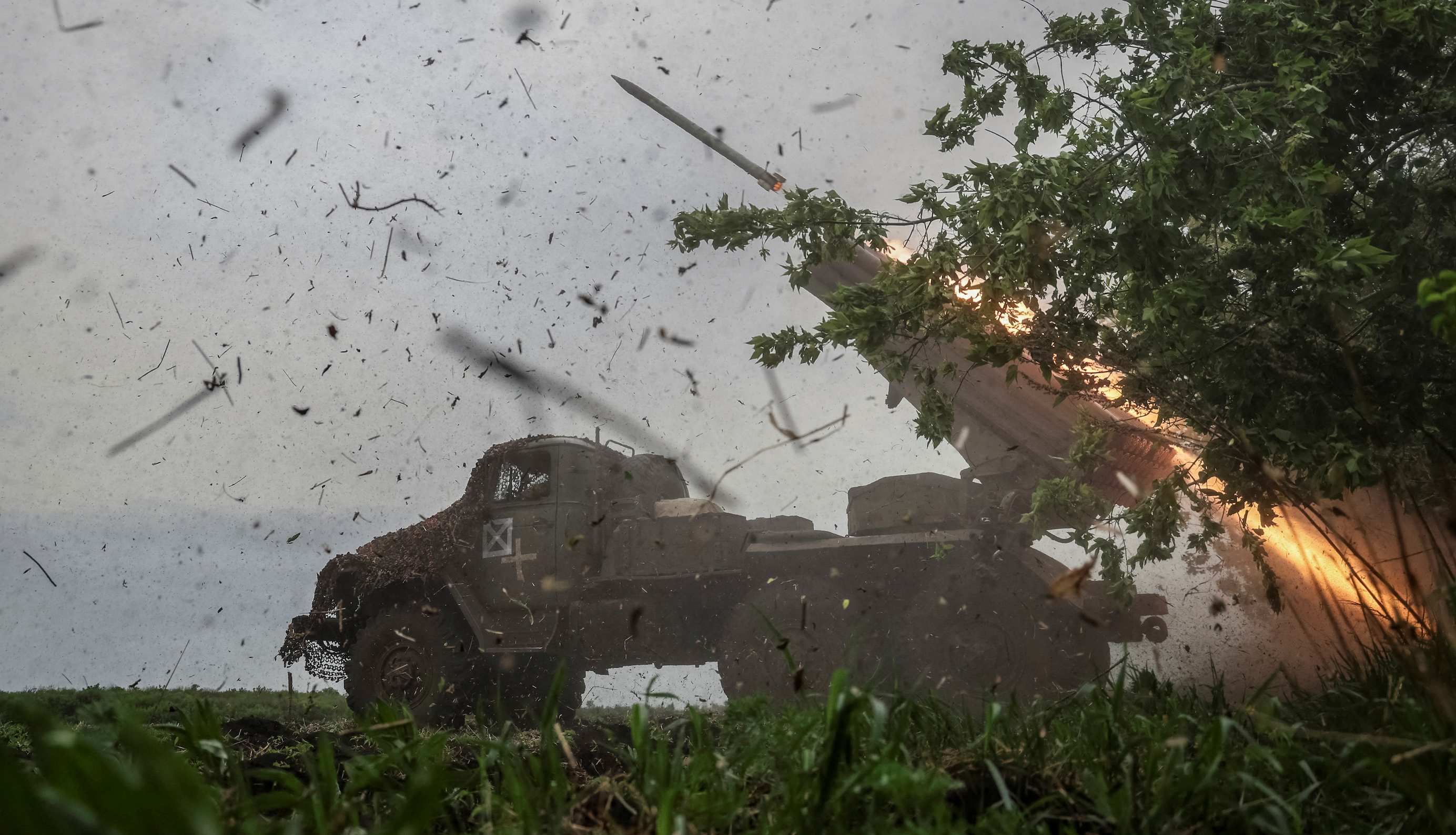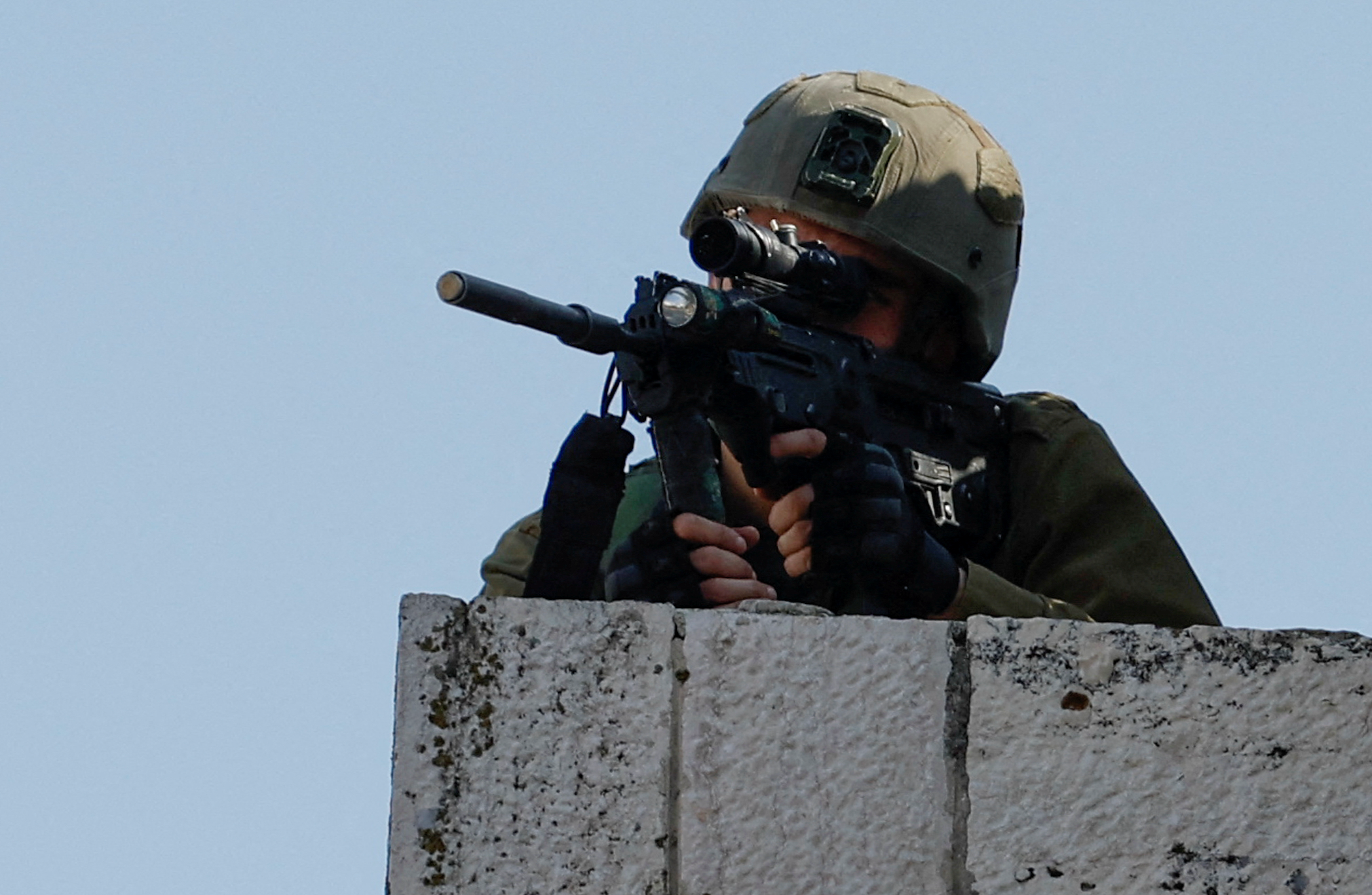
US military's Gaza pier to cost $320M
PHOTO CAPTION: Illustrative photo — A U.S. Air Forces Central loadmaster pushes a pallet of humanitarian aid destined for Gaza onto a C-17 Globemaster III at an undisclosed location within the U.S. Central Command area of responsibility, March 16, 2024, in preparation for an aid flight the following day. (U.S. Air Force photo by Tech. Sgt. Alexander Cook via U.S. Defense Visual Information Distribution Service)
By Phil Stewart and Daphne Psaledakis
WASHINGTON (Reuters) - The U.S. military's cost estimate to build a pier off Gaza to deliver humanitarian aid has risen to $320 million, a U.S. defense official and a source familiar with the matter told Reuters.
The figure, which has not been previously reported, illustrates the massive scale of a construction effort that the Pentagon has said involves about 1,000 U.S. service members, mostly from the Army and Navy.
Still, the cost has roughly doubled from initial estimates earlier this year, according to a person familiar with the matter.
"The cost has not just risen. It has exploded," Senator Roger Wicker, the top Republican on the Democratic-led Senate Armed Services Committee, told Reuters, when asked about the costs.
"This dangerous effort with marginal benefit will now cost the American taxpayers at least $320 million to operate the pier for only 90 days."
Democratic President Joe Biden announced the pier in March as aid officials implored Israel to ease access for relief supplies into Gaza over land routes. By opening a second route for aid, this one by sea, Biden administration officials hope to avert famine in northern Gaza.
Israel's military campaign against Hamas, in response to Hamas' attack on Israel on Oct. 7, has devastated the tiny Gaza Strip and plunged its 2.3 million people into a humanitarian catastrophe.
Still, Wicker and some other lawmakers have questioned whether the pier is a worthwhile endeavor, particularly given the risk that U.S. military personnel could become targets of Hamas militants.
"How much will taxpayers be on the hook once – or if – the pier is finally constructed?" Wicker asked.
"For every day this mission continues, the price tag goes up and so does the level of risk for the 1,000 deployed troops within range of Hamas' rockets."
Concerns about the threat to American troops getting caught up in the Israel-Hamas war were underscored on Thursday as news emerged of a mortar attack near the area where the pier will eventually touch ground. No U.S. forces were present, however, and they were miles off shore -- beyond mortar range.
Biden has ordered U.S. forces to not step foot on the Gaza shore.
The pier will initially handle 90 trucks a day, but that number could go up to 150 trucks daily when it is fully operational. The United Nations said last week that the daily average number of trucks entering Gaza during April was 200 and that there had been a peak on Monday of 316.
A senior Biden administration official said last week that humanitarian aid coming off the pier will need to pass through Israeli checkpoints on land.
That is despite the aid having already been inspected by Israel in Cyprus before being shipped to Gaza. Israel wants to prevent any aid getting to Hamas fighters that boosts their war effort.
The prospect of checkpoints raises questions about possible delays even after aid reaches shore. The United Nations has long complained of obstacles to getting aid in and distributing it throughout Gaza.
The United Nations has appealed for $2.5 billion to try and meet the most urgent needs of the people living in the Gaza Strip between April and December.
(Reporting by Phil Stewart; additional reporting by Idrees Ali and Michelle Nichols; editing by Jonathan Oatis)









